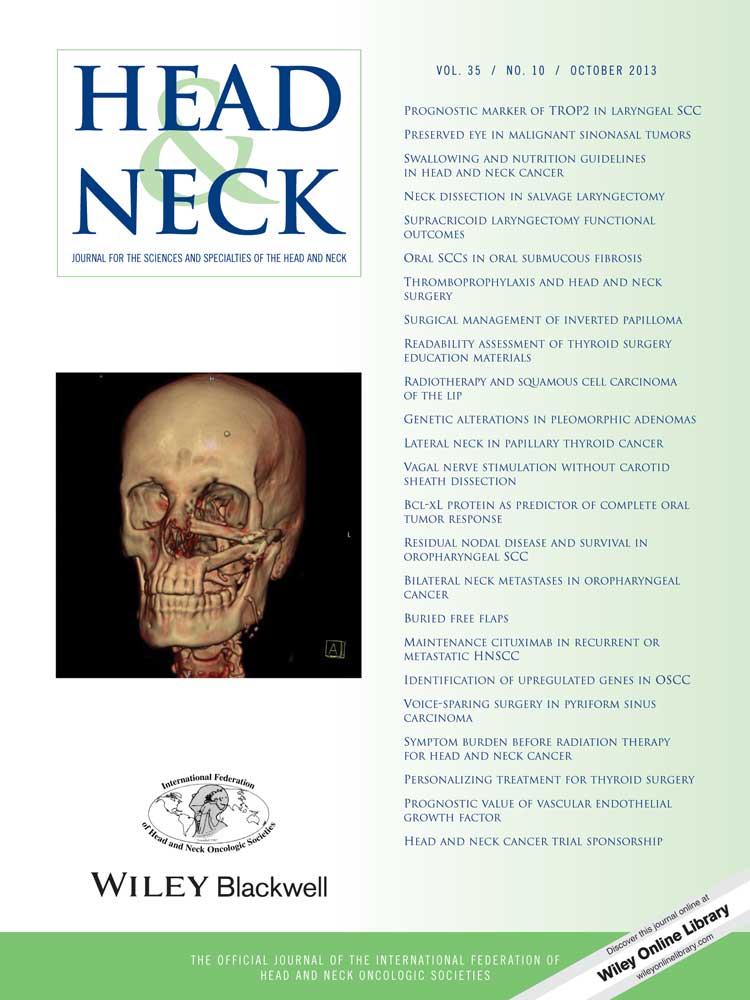Influence of study sponsorship on head and neck cancer randomized trial results†,‡
Conflict of interest disclosures: Dr. Gordon Sun is a Robert Wood Johnson Foundation Clinical Scholar. The Robert Wood Johnson Foundation and the Department of Veterans Affairs were not directly involved in study design, data acquisition and interpretation, or manuscript preparation or review. Any opinions expressed herein do not necessarily reflect the opinions of the Robert Wood Johnson Foundation or the Department of Veterans Affairs.
This work was presented in part at the 8th International Conference on Head and Neck Cancer in Toronto, Canada, July 24, 2012.
Abstract
Background
The purpose of this study was to identify associations between study sponsorship and the methodological quality and published outcomes of head and neck cancer randomized controlled trials (RCTs).
Methods
We systematically searched MEDLINE, EMBASE, CINAHL, and the Cochrane Central Register of Controlled Trials for qualified RCTs, evaluating journal impact factor (IF), Jadad score (measure of study quality), and results favoring or not favoring experimental therapy.
Results
Of 118 RCTs, the most common sponsor was government (38; 32%), followed by nonprofit organizations (30; 25%) and industry (26; 22%). Industry-supported RCTs were associated with publication in journals with higher IF compared with RCTs without industry support (p = .013). Government-supported RCTs were associated with higher mean Jadad score (p = .026) and results favoring experimental therapy (p = .034).
Conclusions
Government-supported, but not industry-supported, RCTs were significantly associated with positive study results. These findings may be confounded by broadly applied definitions of sponsorship. © 2012 Wiley Periodicals, Inc. Head Neck 35: 1515–1520, 2013




